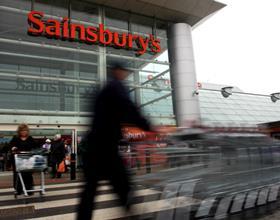
Sainsbury’s is putting on a brave face following its blocked merger with Asda, despite costs related to the deal hitting the bottom line.
In its preliminary results for the year to 9 March 2019, Sainsbury’s revealed its failed bid to merge with Asda cost it £46 million in deal preparation, integration preparation and financing costs.
There was better news with the overall business performance, with sales up 2.1 per cent to £32.4 billion and underlying pre-tax profits rising 7.8 per cent to £635m.
Chief executive Mike Coupe also pointed to the fact that the retailer had successfully reduced net debt and increased the dividend, as well as completing the integration of Argos ahead of schedule and improving stores. That process is set to continue with improvements slated to over 400 more supermarkets this year.
Sainsbury’s plans to continue its focus on technology, a strategy that has included trialling the UK’s first checkout-free grocery store, rolling out SmartShop self-scan to over 100 supermarkets and trialling digital Nectar in Wales ahead of a broader rollout.
In fresh produce specifically, Coupe reported that Sainsbury’s has worked closely with suppliers to develop its Ripe & Ready ranges, which has resulted in a 72 per cent increase in volumes sold over the last five years, and with prices on average 13 per cent lower than the market leader.
Across grocery, Coupe added that the company’s strength in premium, value-added ranges helped it to invest in making its commodity ranges better value. “We are well positioned in a number of high-growth food categories where we can add value for our customers,” he added. “For example, we have a strong share in the fast-growing vegetarian and vegan markets and we have invested in new ranges of plant-based meals for customers who want more alternatives to meat.”






No comments yet